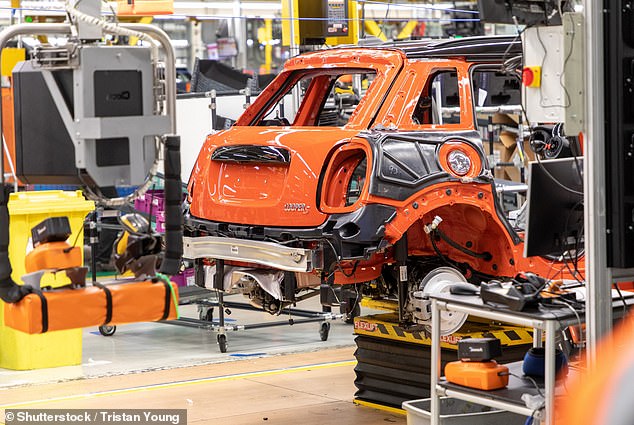British car production has plummeted to its lowest level in more than 40 years as carmakers struggle to cope with falling demand.
It comes as ministers come under increasing pressure to relax electric vehicle targets amid industry warnings that this could lead to factory closures and job losses.
Around 64,216 new cars rolled off UK production lines last month, down 30 per cent on last year, according to industry body the Society of Motor Manufacturers and Traders (SMMT).
It was the worst monthly performance for the industry since 1980, when Britain was hit by industrial unrest and soaring inflation.
The SMMT highlighted that all major UK car manufacturers have seen a decline in production, with electric vehicle production falling by almost 46 per cent.
So far this year, automobile production has decreased by almost 13 percent compared to 2023, with 734,562 vehicles.
‘These figures offer little Christmas joy for the sector. “While a decline was to be expected, given the major changes being made at many plants, manufacturing is under pressure at home and abroad,” said SMMT director Mike Hawes.
Around 64,216 new cars rolled off UK production lines last month, down 30% on last year.
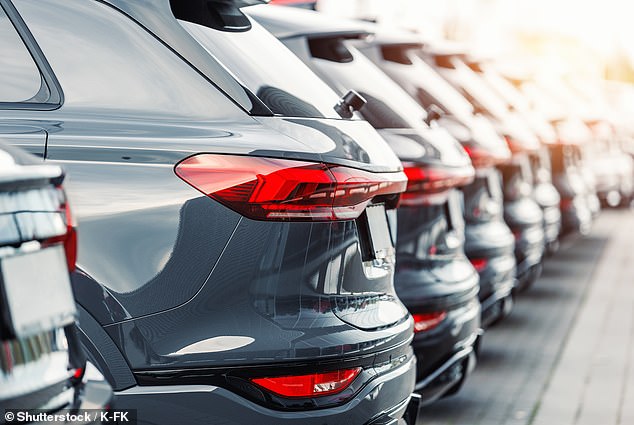
So far this year, automobile production has decreased by almost 13% compared to 2023, to 734,562 vehicles.
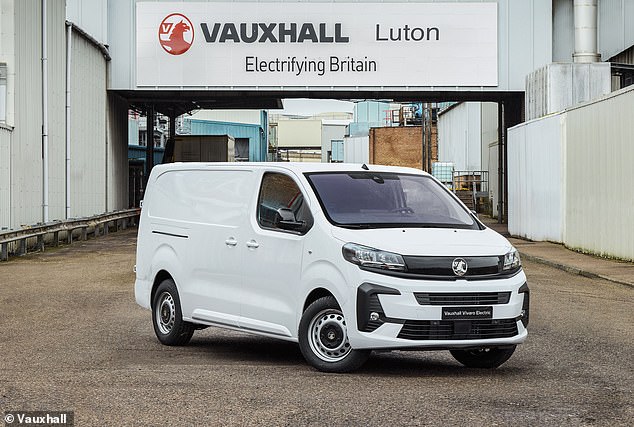
Vauxhall parent company Stellantis says it will close its van factory in Luton next year to consolidate production at its Ellesmere Port plant.
He added: “The government can help by supporting consumers in the transition, accelerating its industrial strategy for advanced manufacturing and, most urgently, reviewing market regulation that is putting enormous pressure on the sector.”
The grim data comes as British carmakers have raised the alarm about the state of the industry.
Last month, car giant Stellantis announced plans to close its van factory in Luton, putting 1,100 jobs at risk.
US group Ford has also said it plans to cut 800 jobs in the UK over the next three years. It currently employs 5,300 people in Great Britain.
The closures and cuts come amid an intensifying dispute between the industry and ministers over targets aimed at increasing the number of electric cars on the roads.
Electric cars must make up at least 22 per cent of carmakers’ sales this year as part of the Zero Emission Vehicle (ZEV) Mandate introduced into UK law earlier this year.
The threshold increases annually, jumping to 28 percent in 2025 and eventually rising to 80 percent in 2030.
Companies that fail to meet required annual targets face heavy fines.
Labor has also pledged to reintroduce a ban on new petrol and diesel cars by 2030, after the Conservative government previously pushed back the deadline to 2035.
Some hybrids will be given a five-year reprieve before all new cars with combustion engines are banned in the middle of the next decade.
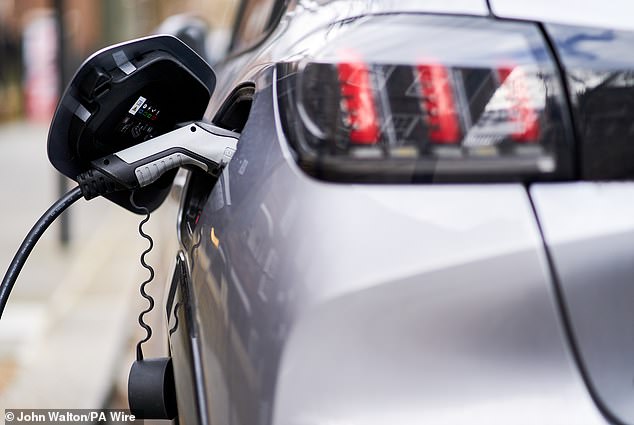
Electric cars must account for at least 22% of automakers’ sales this year, a figure that will rise to 80% in 2030.
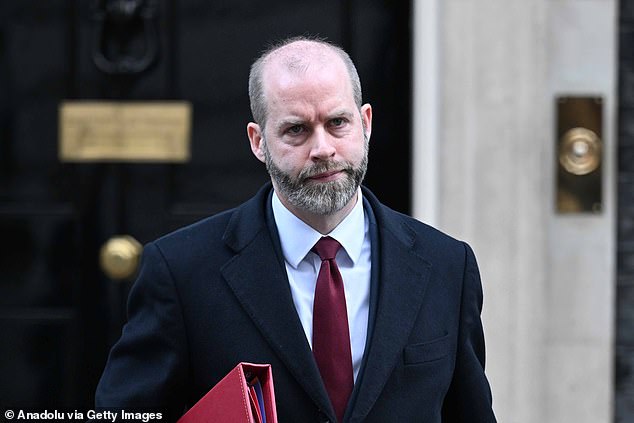
Business Secretary Jonathan Reynolds admitted to MPs last month that the electric vehicle mandate was “not working the way anyone intended”.
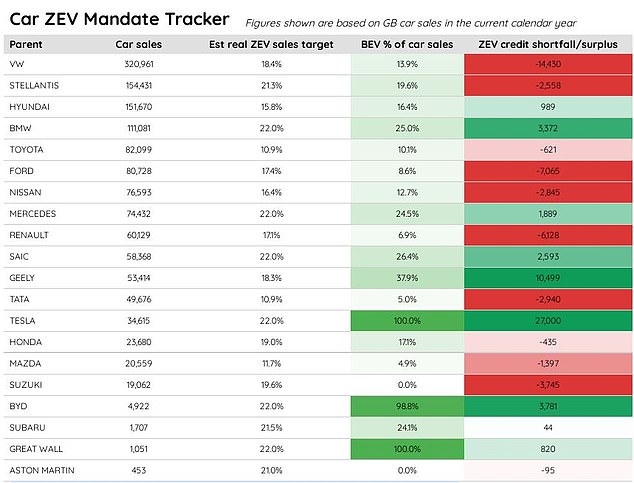
New Automotive’s ZEV tracker shows that Jaguar Land Rover’s parent company, Tata and Toyota, are the two manufacturers that will most often miss their targets.
But carmakers have urged the Government to rethink the targets, warning that falling consumer demand for electric vehicles means they will be forced to close factories and cut jobs instead.
The Government’s stance appears to have softened when Business Secretary Jonathan Reynolds admitted to MPs last month that the electric vehicle mandate was “not working the way anyone intended”.
An announcement is imminent – although probably now in the new year – on easing the ZEV mandate rules to ease the burden on manufacturers, as automakers also face difficulties abroad.
German giant Volkswagen is currently in talks with the country’s powerful unions after around 100,000 of its workers went on strike in protest at its plans to close factories and cut wages.
Meanwhile, Japanese groups Honda and Nissan have begun talks about a possible merger to try to combat growing competition from larger rivals.
Audi this month also confirmed the closure of its electric vehicle factory in Brussels due to falling demand for battery-powered cars, while Ford has also said in recent weeks that it is reducing production of its new Explorer and Capri electric vehicles. over concerns about lack of orders.
Industry observers have said all major auto brands are suffering from a poisonous cocktail of sluggish demand for electric cars and growing competition from China.
Chinese automakers, thanks to significant subsidies from Beijing, have begun to dominate their domestic market and are now looking to enter other countries, adding more competition to the sector.



